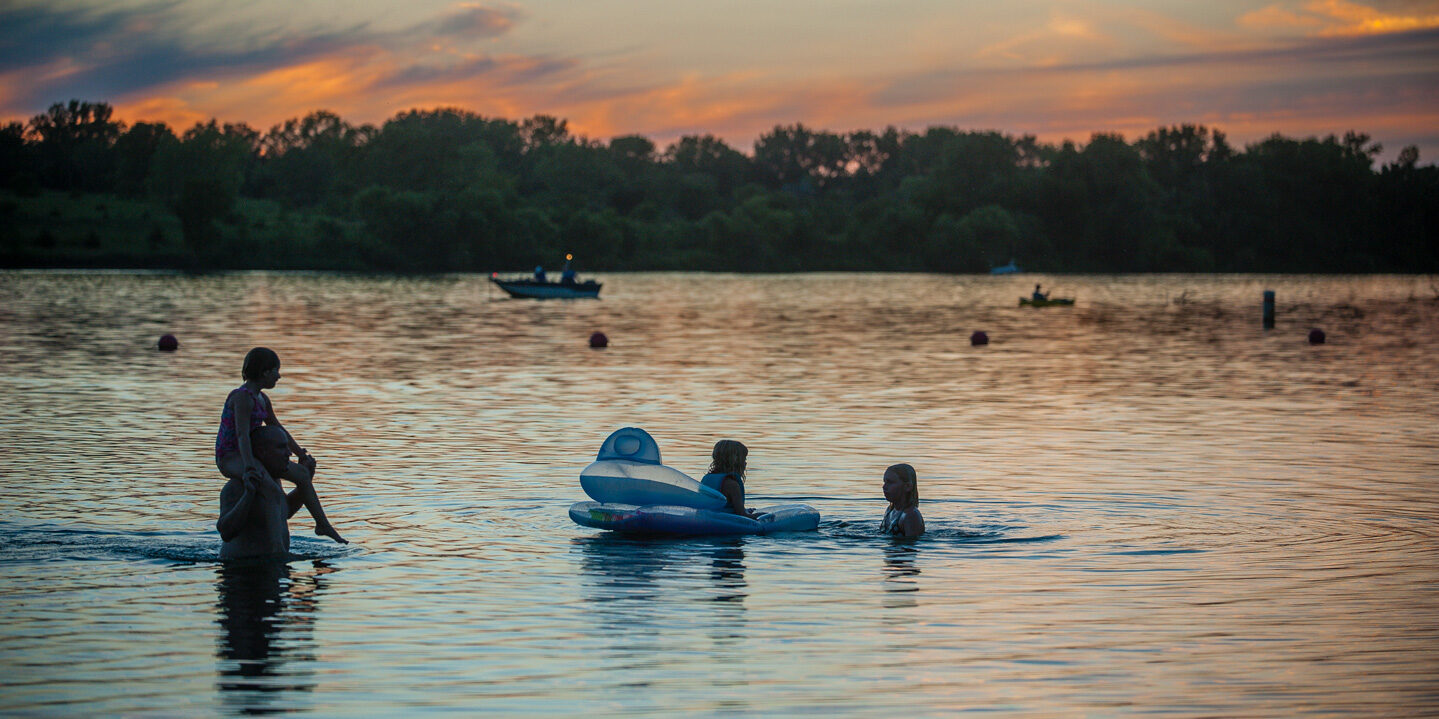Swim safety
Enjoy water-based recreation by following these safety reminders.

Top tips
Never swim alone — Always swim with a buddy.
Pay attention — Avoid distractions and focus on those you are swimming with and the water. Drowning is the leading cause of death for children, according to the American Red Cross, and drownings can happen in seconds, as well as in shallow waters. Staying watchful — even of strong swimmers — is encouraged and the best way to respond quickly should an accident occur.
Wear a life jacket – Children especially should wear a U.S. Coast Guard-approved life jacket, while swimming or wading in water, including swim areas at Nebraska state parks. Floats such as pool noodles, rafts, donuts and kick boards, are not intended to serve as life-saving devises; properly worn life jackets are.
In Nebraska, children under age 13 and anybody on a personal watercraft are required by law to wear a Coast Guard-approved personal flotation device. People being towed by a boat on skis, a tube, or other similar device, also must wear a life jacket. Every vessel, except sailboards, must carry a flotation device for each person on board.
Make sure the life jacket fits — Check the jacket for both weight and size limits. Life jackets should be snug and should not pop up around the ears.
Watch for waves, currents, drop-offs and underwater objects — Lakes, rivers and streams often have murky water, potentially hiding underwater hazards such as logs, currents or changes in water depth. Be prepared for the unexpected.
Avoid alcohol — Boaters and swimmers can become impaired with less alcohol than motor vehicle drivers due to heat and dehydration. Boating Under the Influence also is a criminal violation and is enforced actively in Nebraska.
Watch the weather – Storms can pop up quickly in Nebraska. Check the weather in advance and monitor it during the day, if necessary. Sudden changes in weather can lead to rocky water and potential lightning strikes, both of which put swimmers and boaters at risk.
Learn what to do in an emergency — Know the signs of downing. Consider getting water safety and CPR trained, and if an emergency occurs, remember to call 911 for help.
Expert safety resources
Game and Parks recommends the following for additional water safety resources.
